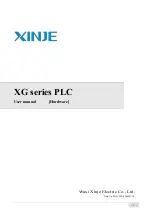
Architecture
1645
SPRUH82C – April 2013 – Revised September 2016
Copyright © 2013–2016, Texas Instruments Incorporated
Universal Serial Bus 2.0 (USB) Controller
34.2.7.2.2.2.2 Operation
When Bulk data is required to be sent to the USB peripheral device, the software should write the first
packet of the data to the FIFO (or two packets if double-buffered) and set the TXPKTRDY bit in the
corresponding HOST_TXCSR register (bit 0). The controller will then send an OUT token to the selected
peripheral endpoint, followed by the first data packet from the FIFO.
If data is correctly received by the peripheral device, an ACK should be received whereupon the controller
will clear TXPKTRDY bit of HOST_TXCSR (bit 0). If the USB peripheral device responds with a STALL,
the RXSTALL bit (bit 5) of HOST_TXCSR is set. If a NAK is received, the controller tries again and
continues to try until either the transaction is successful or the NAK limit set in the HOST_TXINTERVAL
register is reached. If no response at all is received, two further attempts are made before the controller
reports an error by setting ERROR bit in HOST_TXCSR (bit 2).
The controller then generates the appropriate endpoint interrupt, whereupon the software should read the
corresponding HOST_TXCSR register to determine whether the RXSTALL (bit 5), ERROR (bit 2) or
NAK_TIMEOUT (bit 7) bit is set and act accordingly. If the NAK_TIMEOUT bit is set, the controller can be
directed either to continue trying this transaction (until it times out again) by clearing the NAK_TIMEOUT
bit or to abort the transaction by flushing the FIFO before clearing the NAK_TIMEOUT bit.
If large blocks of data are being transferred, then the overhead of calling an interrupt service routine to
load each packet can be avoided by using DMA.
34.2.7.2.2.2.3 Error Handling
If the target wants to shut down the Bulk OUT pipe, it will send a STALL response. This is indicated by the
RXSTALL bit of HOST_TXCSR register (bit 5) being set.
34.2.7.2.3 Interrupt Transactions
When the controller is operating as the host, interactions with an Interrupt endpoint on the USB peripheral
device are handled in very much the same way as the equivalent Bulk transactions (described in previous
sections).
The principal difference as far as operational steps are concerned is that the PROT field of
HOST_RXTYPE and HOST_TXTYPE (bits 5-4) need to be set (binary value) to represent an Interrupt
transaction. The required polling interval also needs to be set in the HOST_RXINTERVAL and
HOST_TXINTERVAL registers.
















































